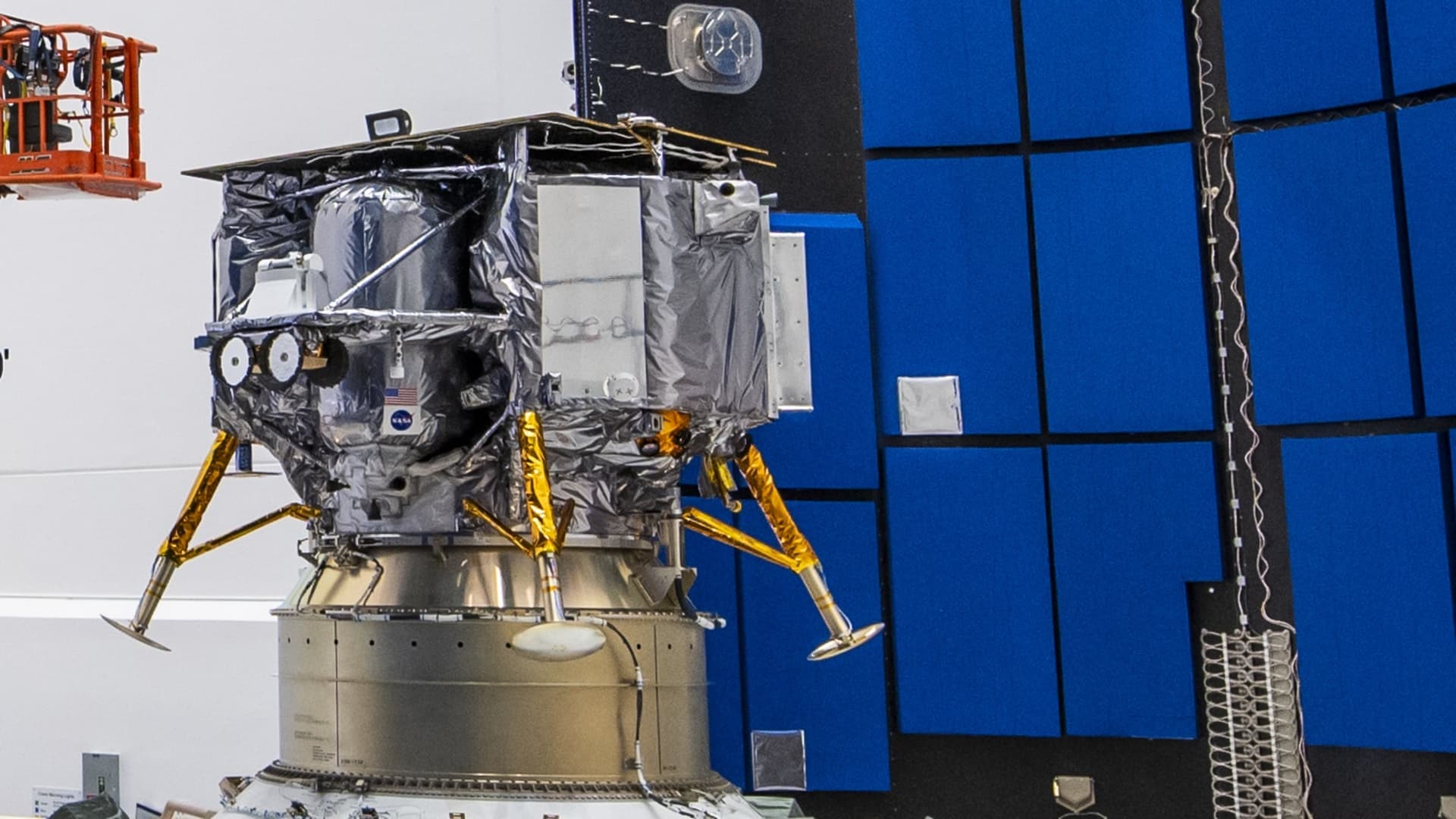Astrobotic’s Peregrine lunar lander is seen during preparations for launch near NASA’s Kennedy Space Center in Florida.
United Launch Alliance
Pittsburgh-based Astrobotic’s inaugural lunar mission suffered a malfunction shortly after launch, and the company is calling off the landing attempt.
It would have been the first U.S. moon landing in more than 50 years.
Astrobotic said late Monday that the goal for its Peregrine moon lander is now to get “as close to lunar distance as we can” before the spacecraft begins tumbling and loses power. The company suspects the malfunction was a failure within the spacecraft’s propulsion system, causing a leak that is quickly draining the vehicle of fuel.
The company had aimed to make a moon landing attempt on Feb. 23, but in light of the propulsion problem has since been “maximizing the science and data we can capture,” the company said in a post on social media platform X.
Astrobotic’s Peregrine is carrying 20 payloads for government and commercial customers, five of which are for NASA under an $108 million contract.
Sign up here to receive weekly editions of CNBC’s Investing in Space newsletter.
Peregrine was deployed successfully after launching on the inaugural flight of ULA’s Vulcan rocket early Monday morning, which made its long-awaited debut from Florida’s Cape Canaveral.
Hours after separating from the rocket, Astrobotic announced it was receiving data from the lander and that many of its systems were working as expected. However, after activating its propulsion system, Peregrine suffered an issue and began tumbling.
The brand new rocket, United Launch Alliance’s Vulcan Centaur, lifts off from Space Launch Complex 41d at Cape Canaveral Space Force Station in Cape Canaveral, Florida, on Jan. 8, 2024, for its maiden voyage, carrying Astrobotic’s Peregrine Lunar Lander.
Gregg Newton | AFP | Getty Images
Astrobotic spent the following hours improvising and was able to get the spacecraft’s solar arrays pointing toward the sun to charge Peregrine’s battery. But the propellant leak has since meant that Peregrine has only enough fuel to remain stable until Thursday.
“We are using Peregrine’s existing power to perform as many payload and spacecraft operations as possible,” Astrobotic said.
While Peregrine Mission One will not be the first American spacecraft to land on the moon since Apollo 17 in 1972, both the company and NASA have subsequent attempts lined up. Astrobotic’s inaugural flight is just the first of six launches of lunar landers from three different American companies slated for this year alone.
The push falls under NASA’s Commercial Lunar Payload Services (CLPS) initiative, which aims to deliver science and cargo to the moon with increasing regularity in support of the agency’s Artemis crew program.
Astrobotic has a second lunar mission funded already, with the company saying it’s so far secured upwards of $450 million in government and commercial contracts.
“We are grateful for the outpouring of support we’re receiving – from messages on social media to phone calls and helping hands. This is what makes the space industry so special, that we unite in the face of adversity,” Astrobotic wrote in a statement.

